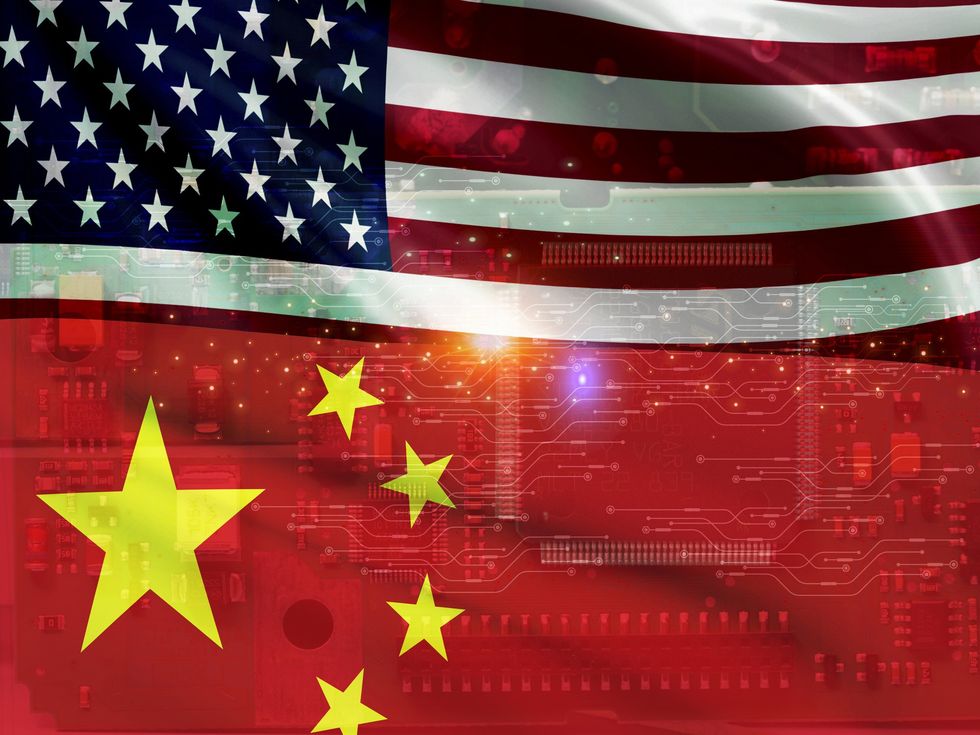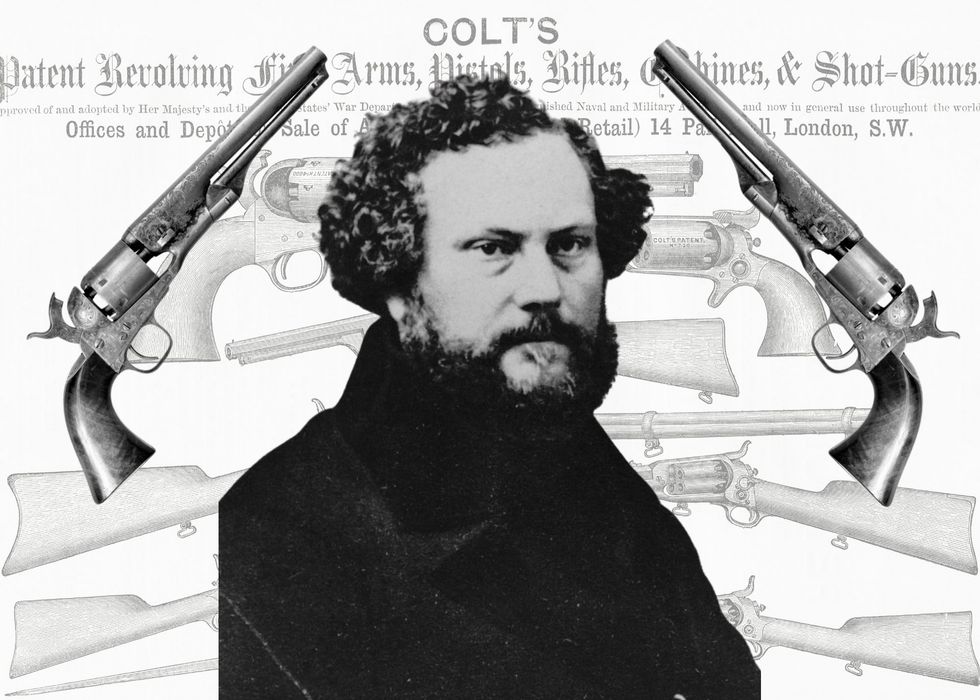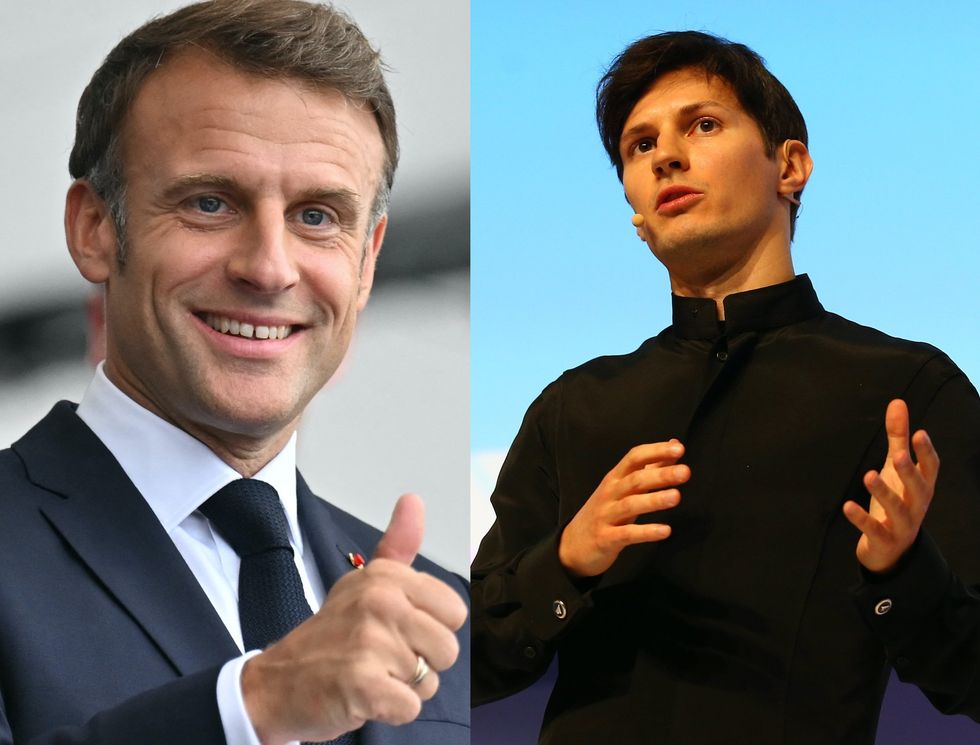The elites dream of turning America into China. Sadly, they're succeeding.
This week, Mike Benz, executive director of the Foundation for Freedom Online, took advantage of a new meme to make an old point that is gaining new importance: “You can’t make us China if we China ourselves first.” The idea, which goes back at least to New York Times columnist Thomas Friedman’s infamous 2010 China-for-a-day daydream, is simple enough: The Chinese seem to have figured out how to harmonize technology with unity, resulting in massive growth for the people and massive privilege for elites; can’t we take a cue from Beijing and do that too? The solution there is to overthrow America with a new, digital-age America, one that borgs up the country and its people just as much as China and the Chinese, but in our own unique way. The joke is that, of course, Friedman didn’t really want to become China; he wanted to have his American cake and eat it too, and so does just about everyone else who looks over the sea with envy at China’s apparent mastery of political reorganization on digital-age terms. Because the quickest way to become China is to let China remake us in its image, and well ... The wishcast takes on a different tenor: If only our elites could “pull a China” here, all on their own! But here, the obstacles morph too. It’s sinking in that we’re not very good at becoming China, and for this, our elites are happy to blame the American people, who are proving harder to pacify than expected, and time is running out. There’s another obstacle: China is trying to unseat the U.S. as the dominant, definitive global power. This suggests the things our elites envy about China can only be achieved by overthrowing America’s global dominance, which, in turn, threatens American elites. For us in the West, there’s really only one path to that kind of collectivist unity. Many insist that’s communism, but communism — at least as we’ve known it — is just a halfway step. Communism, as we’ve known it, gained power and adherents by positioning itself against not just Christianity but all religions. That proved to be reasonably effective for a time — for about as long as radio and television dominated our technologically mediated environment. That environment made human imagination the most powerful force in the world — a world where, of course, the soft atheist communist song “Imagine” became the most popular, echoing John Lennon’s earlier contention that “Christianity will go. It will vanish and shrink. I needn't argue about that; I'm right and I'll be proved right. We're more popular than Jesus now. I don't know which will go first — rock 'n' roll or Christianity. Jesus was all right, but his disciples were thick and ordinary." America’s imagineering elite built digital technology to consummate post-religious America’s capitalist-powered communism around the world. Yet alarmingly, that project failed, and China’s post-religious capitalist-powered communist project started to really take off. This is because digital collectivism vibes very well with the religious frameworks established at the origin of the Chinese civilization-state. After the end of the Cold War, Chinese elites began putting effort into demonstrating to themselves and their people that, basically, Western communism suffered from certain internal problems that China didn’t have to deal with because of its deep civilizational anthropology and cosmology. America certainly does not share this deep origin, to say the least. The spiritual origins of American civilization are Protestant, and since the beginning, the anarchistic tendencies of the Southern colonists and the theocratic tendencies of the Northern colonists have created a complex and conflicted identity that only leaves one absolute path toward authentic “native” collectivism at the national scale: that of the established church. Of course, that’s squarely at odds with our Constitution. So the real challenge faced by American elites trying to beat China at its own game of usurping American global dominance in the digital age is to answer the riddle, “When is a church not a church?” It is deeply sensed, if rarely ever articulated, that the answer to this question will unlock the ultimate cheat code — imposing a theocracy on Americans that will allow the elite to digitally collectivize quickly and powerfully enough to replace the old America’s global dominance with that of the new, boxing out China before it can win the world. And for the elite, this approach had better work, because no other alternative seems to exist. It’s an all-or-nothing gamble. And so, in the struggle among different elite factions for control over deciding which theocracy is established through the church that is not a church, two candidates for institutionalized worship, drawn from the deep religious substrate of the West, have swiftly risen to the top of the pack. The first is Justice, the god of the woke, a queered version of Zeus who’s all about bringing infinitely prideful yet in


This week, Mike Benz, executive director of the Foundation for Freedom Online, took advantage of a new meme to make an old point that is gaining new importance: “You can’t make us China if we China ourselves first.”
The idea, which goes back at least to New York Times columnist Thomas Friedman’s infamous 2010 China-for-a-day daydream, is simple enough: The Chinese seem to have figured out how to harmonize technology with unity, resulting in massive growth for the people and massive privilege for elites; can’t we take a cue from Beijing and do that too?
The solution there is to overthrow America with a new, digital-age America, one that borgs up the country and its people just as much as China and the Chinese, but in our own unique way.
The joke is that, of course, Friedman didn’t really want to become China; he wanted to have his American cake and eat it too, and so does just about everyone else who looks over the sea with envy at China’s apparent mastery of political reorganization on digital-age terms. Because the quickest way to become China is to let China remake us in its image, and well ...
The wishcast takes on a different tenor: If only our elites could “pull a China” here, all on their own! But here, the obstacles morph too. It’s sinking in that we’re not very good at becoming China, and for this, our elites are happy to blame the American people, who are proving harder to pacify than expected, and time is running out.
There’s another obstacle: China is trying to unseat the U.S. as the dominant, definitive global power. This suggests the things our elites envy about China can only be achieved by overthrowing America’s global dominance, which, in turn, threatens American elites.
For us in the West, there’s really only one path to that kind of collectivist unity. Many insist that’s communism, but communism — at least as we’ve known it — is just a halfway step.
Communism, as we’ve known it, gained power and adherents by positioning itself against not just Christianity but all religions. That proved to be reasonably effective for a time — for about as long as radio and television dominated our technologically mediated environment.
That environment made human imagination the most powerful force in the world — a world where, of course, the soft atheist communist song “Imagine” became the most popular, echoing John Lennon’s earlier contention that “Christianity will go. It will vanish and shrink. I needn't argue about that; I'm right and I'll be proved right. We're more popular than Jesus now. I don't know which will go first — rock 'n' roll or Christianity. Jesus was all right, but his disciples were thick and ordinary."
America’s imagineering elite built digital technology to consummate post-religious America’s capitalist-powered communism around the world. Yet alarmingly, that project failed, and China’s post-religious capitalist-powered communist project started to really take off.
This is because digital collectivism vibes very well with the religious frameworks established at the origin of the Chinese civilization-state. After the end of the Cold War, Chinese elites began putting effort into demonstrating to themselves and their people that, basically, Western communism suffered from certain internal problems that China didn’t have to deal with because of its deep civilizational anthropology and cosmology.
America certainly does not share this deep origin, to say the least. The spiritual origins of American civilization are Protestant, and since the beginning, the anarchistic tendencies of the Southern colonists and the theocratic tendencies of the Northern colonists have created a complex and conflicted identity that only leaves one absolute path toward authentic “native” collectivism at the national scale: that of the established church.
Of course, that’s squarely at odds with our Constitution. So the real challenge faced by American elites trying to beat China at its own game of usurping American global dominance in the digital age is to answer the riddle, “When is a church not a church?”
It is deeply sensed, if rarely ever articulated, that the answer to this question will unlock the ultimate cheat code — imposing a theocracy on Americans that will allow the elite to digitally collectivize quickly and powerfully enough to replace the old America’s global dominance with that of the new, boxing out China before it can win the world.
And for the elite, this approach had better work, because no other alternative seems to exist. It’s an all-or-nothing gamble.
And so, in the struggle among different elite factions for control over deciding which theocracy is established through the church that is not a church, two candidates for institutionalized worship, drawn from the deep religious substrate of the West, have swiftly risen to the top of the pack.
The first is Justice, the god of the woke, a queered version of Zeus who’s all about bringing infinitely prideful yet interoperable identities under one perfect arbiter to rule them all. The second is Enlightenment, the god of tech, which increasingly worships the convergence of all interoperable things into a single, infinitely illuminating intellect.
You can see that interoperability and infinity dominate both these creeds, and as we all see, most techies are willing to worship the god of Justice so long as the god of Enlightenment (and its priests) has pride of place, and most wokies are willing to worship the god of Enlightenment so long as the god of Justice (and its priests) has pride of place.
After all, true absolute justice on Earth requires a superhuman intelligence capable of constantly computing, adjudicating, and ruling on all micro-injustices. Only the merger of the human and the machine into a cyborg collective allows this. The outlines of a church unlike any other begin to emerge. Woke and tech harmoniously combine into one big cyborg theocracy ... one big enough even to ingest China itself.
That’s the plan! And that’s why, without being able to turn to a church that is a church yet does not establish a theocracy, Americans trying to rescue their country and their humanity will find themselves falling back darkly on only what weapons they manage to cling to.
Originally Published at Daily Wire, World Net Daily, or The Blaze
What's Your Reaction?



















![‘[Bleeping] insanity’: Watch Joe Rogan unload on Biden, Zelensky, and Deep State as fears of World War lll grow](https://www.wnd.com/wp-content/uploads/2024/11/joe-rogan-20241122-jpg.jpg)












































































